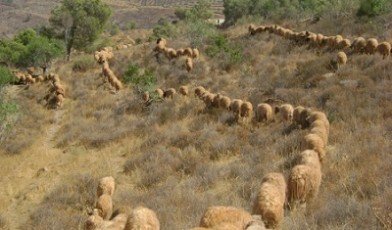Why this species?
Jordan’s flora includes more than 2,551 unique plant species that are adapted to arid conditions, including more than 60 tree species. Many of these tree species are now severely threatened by urban development, overgrazing, water scarcity and climate change. However, limited information about how to cultivate these species was preventing effective conservation efforts.
What did we do?
With support from GTC, the Royal Botanic Garden Jordan (RBGJ) conducted research into the propagation of Jordan’s native trees and publicised cultivation guidance to the wider community. This encouraged stakeholders to grow native threatened tree species, to ultimately improve their conservation status in the wild.
Acacia tortilis is threatened nationally in Jordan. Photo credit: Hideyuki Narita
Key achievements
RBGJ gathered and reviewed available information about propagation techniques for native tree species from Forestry Department research centres and private nurseries. Research into existing protocols highlighted a bias for exotic species. For the small number of native species for which trials had been undertaken, no systematic and scientific documentation of the approaches had been followed, and no reliable results obtained. To address this gap, RBGJ collected seed and carried out propagation trials for threatened Jordanian tree species, determining which methods produce the greatest propagation success. Seed was also stored in the RBGJ seed bank to be available for future restoration initiatives. Propagation protocols were produced after extensive research at the RBGJ. These protocols were shared with NGOs and government bodies and planting of native tree species was promoted to local schools teachers. This knowledge will be passed on to colleagues and school children as part of school tree planting programmes. Additionally, the protocols have been made freely available to download from the BGCI website (www.bgci.org/where-we-work/jordan/).
Contact details
For more information on this project, please contact [email protected]
